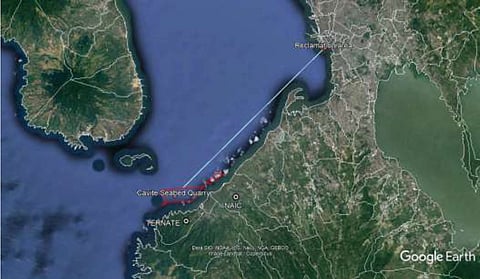
- NEWS
- the EDIT
- COMMENTARY
- BUSINESS
- LIFE
- SHOW
- ACTION
- GLOBAL GOALS
- SNAPS
- DYARYO TIRADA
- MORE

A summit on Saturday will bring together environmentalists, fisherfolk and other stakeholders to protest seabed quarrying in Cavite province.
The event, organized by various non-profit groups that will be held at the Philippine Christian University, aims to raise awareness about the negative impacts of dredging on the marine ecosystem and coastal communities.
It will also feature discussions on the urgent need to stop dredging activities in Cavite as participants will also call on the Department of Environment and Natural Resources (DENR) to release the results of a cumulative impact assessment of seabed quarrying conducted last year.
According to data from the Mines and Geosciences Bureau (MGB), there are currently five seabed quarrying permits being carried out in Cavite which cover around 27,000 hectares of sea area and have resulted in the dredging of an estimated 40 million cubic meters of sand.
The quarried materials are being used for large-scale projects in Manila Bay and Bulacan. In 2022, Bishop Reynaldo Evangelista of Imus condemned the expanded seabed quarrying at the San Nicholas Shoal, citing its negative impact on the marine ecosystem and coastal communities.
Studies have shown that seabed quarrying can destroy the marine ecosystem, poison the ocean, deplete oxygen levels, and harm sea plants. It can also lead to a loss of livelihoods for fishermen.
Non-profit environmental group Kalasag has documented incidents of intimidation and red-tagging against activists campaigning against seabed quarrying.
Meantime, Alyansa Tigil Mina has also highlighted the risks associated with offshore mining, dredging and reclamation projects, including red tide, coastal erosion, flooding, and damage to seabeds and organisms.
The summit will call for an end to seabed quarrying, a halt to reclamation projects, and a benefit and cost analysis of seabed quarrying. Participants will also advocate for legislation to prohibit seabed quarrying in the Philippines.
